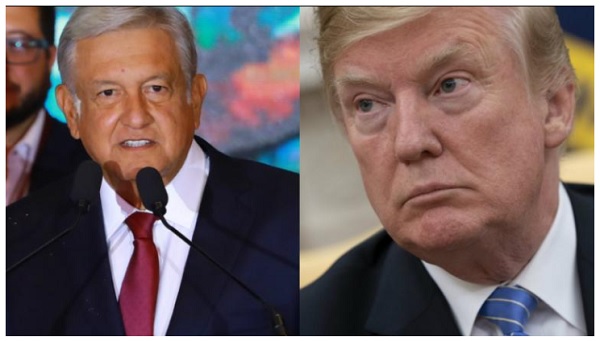(Bloomberg) — Mexico stock investors seem more worried about Andres Manuel Lopez Obrador than Donald Trump.
Equity volatility has surged in recent days as Mexico’s president-elect and his allies spook investors with plans and proposals they see as damaging to the economy. The swings have grown to levels beyond what was seen in the run-up and aftermath of Trump’s surprise win, coming off a campaign in which he routinely accused Mexico of stealing jobs from the U.S.
The hand wringing over Mexico’s left-wing president-to-be stems from two recent developments: a surprise proposal by a lawmaker from his Morena party to limit the fees banks can charge customers, and Lopez Obrador’s decision last week to scrap a $13 billion airport project in Mexico City that had already raised funds with overseas bonds. While investors always had concerns about how friendly the next president would be to business, much of the worry had been put aside since his July election victory as he made reassuring comments about not wanting to hurt the country’s investment climate.
“It’s a shock to the system,” said Andy Wester, a senior investment analyst at Proficio Capital Partners.
Realized 90-day volatility for the S&P/BMV IPC stock gauge is at its highest level in more than five years, surging well past the previous peak which came shortly after Trump’s victory. The country’s stocks are now down 12 percent this year, the worst performance among benchmarks in the Americas.
Meanwhile, investors are fleeing the largest U.S. exchange-traded fund for the country’s stocks at the fastest pace since 2011.
Of course stock volatility in Mexico isn’t without precedent during the past decade. In fact, the current level is comparable to spikes seen in 2015, 2013 and 2011.
Still, investors in the $836 million iShares MSCI Mexico ETF, known by its ticker EWW, seem quite discouraged. They pulled more than $141 million from the fund Thursday, the largest single-day redemption since August 2011. Investors traded more than half a billion dollars worth of EWW shares, close to quadruple the average daily turnover for the past five years.
The ETF dropped 3.3 percent Friday to $41.21 as of 11:18 a.m. in New York, extending its two-day decline to almost 10 percent.

